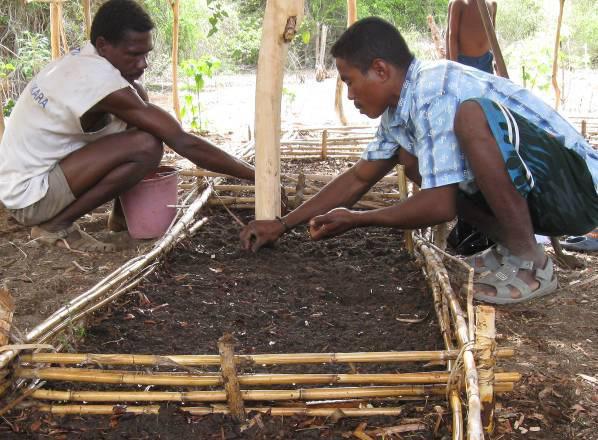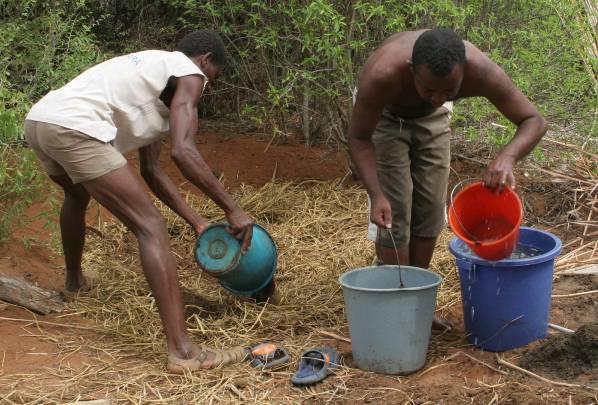Martina Petru
Other projects
14 Mar 2011
'Terra Preta ny Madagasikara': Charcoal Remnants to Facilitate Forest Regeneration and Improve Agricultural Soils in SW Madagascar
Ho avy mobilizes local people to create sustainable livelihoods that enhance their well-being, and to restore the Spiny Forest by propagating native trees.

The Spiny Forest ecosystems of southwestern Madagascar are among the planet’s most biologically diverse and unique forests with over 90% endemism. At the same time these forests are the least protected, the most understudied and currently the most deforested and threatened forests on Madagascar. Southwest Madagascar is the poorest, least developed and least educated region of the island, with a great need for implementing grassroots conservation and restoration efforts. Rural people from coastal and inland communities subsist directly from forest resources by harvesting edible and medicinal plants, fodder for livestock, firewood, and timber for construction, but mainly for making charcoal. Charcoal production is the major source of fuel and income for the 20 million residents of Madagascar.

Madagascar’s Spiny Forest has over two dozen tree species that are targeted specifically for charcoal production. Overexploitation places severe pressure on natural populations of these species and very little is known about their ecology or how they regenerate. Ho avy partners with local people to restore and manage forest resources under a rotational harvest scheme. Sustainable energy solutions reducing the exploitation pressure: efficient stoves and solar ovens, and alternative fuels, i.e. ‘green charcoal’ and ‘biogas’ will be introduced. Environmental education and training are an essential part of making ho avy’s program self-sustainable.
Ho avy focuses on:
- field research identifying the tree species that are most frequently harvested and monitoring their spontaneous regeneration in both disturbed and undisturbed areas of the forest.
- nursery propagating the target trees for restoration + permaculture vegetable gardening for consumption and market sale (= surplus income). The nursery design will incorporate effective soil improvement and irrigation design.
- education courses and training are crucial for understanding and adopting novel approaches by the local people. Ho avy encourages them to professionalism in carrying out projects independently, responsibly and successfully with lasting enthusiasm and motivation.
- sustainable energy solutions: efficient stoves and solar ovens will be promoted in the community. Alternative fuels: green charcoal and biogas are perspective options to recycle vegetable and crop waste, manure and sewage, and organic house waste into cooking fuels for households.